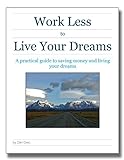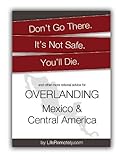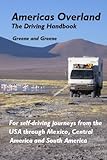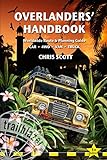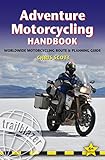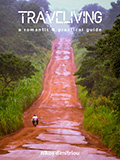Overland Brazil Travel
Pan American Highway > Brazil
Currency to display:
Contents
- 1 Visiting Brazil
- 2 VISA Requirements for Brazil
- 3 Entering Brazil with a Car or Motorbike
- 4 Driving in Brazil
- 5 Gas and Diesel price in Brazil
- 6 Safety and Security Considerations
- 7 Camping in Brazil
- 8 Navigation
- 9 Special Overland Travel interests
- 10 Vehicle Maintenance
- 11 Buy or sell a car or motorbike in Brazil
- 12 References
- 13 Helpful External links
Visiting Brazil[edit]
Give a brief overview of what it's like to visit. How easy is the border, how safe is the country, are there great things to see and do, etc.
VISA Requirements for Brazil[edit]
Following is a description of the paperwork and process required for a US citizen to obtain a visa in Ciudad del Oueste, Paraguay in July 2015. Required Items:
- Passport valid for a minimum of six months past the current date.
- Printouts of your bank statement for the past 3 months.
- Vehicle title (proof of onward travel)
- 1 Passport photo
- Proof of payment of fee - at time of writing, 960,000 Guarani (US$160) for US citizens.
- Application form - Go to http://scedv.serpro.gov.br and select Solicitar Visto. Print the form when you are done.
- Birth certificate for children traveling with you.
Process: Obtain all required items except the proof of payment. Submit them at the consular office. The officer will give you a payment voucher for the Bank of Brazil. In Ciudad del Oueste, there is one located in the shopping complex near the McDonalds on the road to Ascuncion. Pay the fee in the bank and get the form with the stamp and signature showing you've paid.
Return to the consular office and deliver the proof of payment. For us our visas were ready in 24 hours.
Entering Brazil with a Car or Motorbike[edit]
Correct as of: Sep 2014
UPDATING IN 2020
Required Paperwork[edit]
(To check if you need a travel Visa for Brazil, application instructions and fees see: Brazil Visa online application at VisaHQ.com)
While no special visa is required, you must obtain a passport stamp. Additionally, you will need the vehicle ownership documents and proof of insurance. A temporary import document is required, it is essentially a waiver of tax fees.
- None, just your passport.
Process at border[edit]
Go to immigration and get your passport stamped, no vehicle importation is needed for vehicles being driven in which will later be driven out again. A vehicle is automatically admitted when the owner is admitted with a valid visa. Aduana (customs) may wish to inspect your vehicle (for illegal goods). Note that the entry and exit stamps are numbered. Upon entry the stamp should end with an odd number, upon exit it should end with an even number. You should check this as if it is done incorrectly you may have problems.
After entry stamp with date, proceed to Aduana or Fiscalia office for a temporary import document. Dates and term will match visa stamp in passport.
Cost of entry[edit]
Entry is free and no country requires a visa at this date (2020)
Free for vehicle. Many European passports will be granted free entry for 90 days. Some countries (including USA and Australia) require visas. Brazilian Consulates at border towns usually issue visa within less time and with less paperwork required.
Permitted length of stay[edit]
As long as the legal owner can stay.
Extension of stay[edit]
The length of time a vehicle can be in Brazil is only based how long the owner can stay in Brazil. The information given below is about extending the stay for the owner, which by default extends the stay for the vehicle.
Custom info: http://intranet.sefaz.ba.gov.br/tributaria/fiscalizacao/regaduan.pdf.
The number of days given to tourists when entering Brazil varies according to the whims of the federal police officer who stamps your passport. Generally 90 days are given to most tourists. If you are from the US, Canada, Australia or New Zealand you would have had to get your visa ahead of time which allows for 90 days upon entry with a maximum extension of 180 days total. From talking to different Europeans we have met in Brazil we get the impression most Europeans are also allowed 90 days with a maximum of 180 days without having to pay for a Visa however this information is not tested and you should check with the federal police for your specific country.
The first time we entered Brazil we were given only 30 days and told we could extend later. The second time we entered we were given 90 days. Here is the process we went through as US passport holders, extending our visas in Rio de Janiero. My understanding is that it is the same for everybody but you should check the rules for your country just in case.
In Rio, the office of the Policia Federal that deals with tourist visas is located at the International Airport-Galeao, terminal 1 on the third floor. The website says they only accept extension paperwork from 8 to 12 in the morning, and the lines get long so I recommend arriving as early as possible. The waiting takes awhile but once you are talking to somebody the process is very fast and you should receive your extension right then. If needed there is an internet cafe/copy place at the airport on the bottom floor.
You will need the following items to extend:
- Tourist visa extension request form (given to you at the office and filled out by hand)
- Passport
- Immigration paper given to you when entering
- Proof of departure from the country dated within the next 90 days (if traveling by car we took a copy of the title of our vehicle and explained we were driving our own vehicle through the country which was accepted without question)
- Proof of financial independence-the paper we were given said a credit card would be acceptable but the officer at the information desk asked for a copy of a bank statement. I would recommend having a copy of your bank statement handy just in case
- Copy of the payment form with receipt of payment attached-the fee is R$67.00 BRL (this should be done ahead of time) NOTE: If your are extending anywhere besides Rio de Janeiro the information for this form is going to be different. You will have to go to the office first and get the code and location information from them.
- Go to http://www.dpf.gov.br, click on the GRU link along the left hand side of the main page under Servicos.
- Click on 1-GRU-Funapol (estrangeiro, etc)
- Click on 3-Pessoas e entidades estrangeiras
- Fill in the form. Under Unidade Arrecadadora select: SUPERINTENDENCIA REGIONAL NO ESTADO DO RIO DE JANEIRO. The Codigo da Receita is 140090. Once this is entered the R$67.00 BRL fee should fill in itself.
- Submit the form and print a copy of the receipt.
- Take this receipt to any bank and pay the fee. They will give you half the page back with the payment receipt stapled to it
Update 2023: Two campervan owners managed to extend their TIP in Brazil for an additional 90 days once they had extended their immigration status. This can technically be done in any Receita Federal, however most of these places do not realise that they can extend a TIP for a foreign vehicle (it's quite a rare request). In such a case, one owner managed to complete their TIP extension with personnel in Santos Port (coast) and another in Campinas (VCP) airport customs. Therefore, it may also be possible to complete the same further 90 days extension in other airports or ports countrywide.
For any personnel who are not sure of the extension process, it can be as simple as stamping the back of the current TIP and signing it with the new date of expiry (should be the same as the expiry date of tourist visa for vehicle owner). We however were given a whole new TIP.
Storing a vehicle and temporarily leaving the country[edit]
2020- Because there is now a permit for the vehicle, it is linked to the passport holder. It is technically illegal to exit the country without the vehicle.
As of 2013, there is no paperwork or stamp in your passport for your vehicle, so you are free to leave it in the country while you leave. As long as the vehicle owner is legal in the country, the vehicle is too. In 2014 many people have proved this - leaving their vehicle in Brazil for many months while they are not, the returning on a new visa and no issues with the vehicle.
Custom info: http://intranet.sefaz.ba.gov.br/tributaria/fiscalizacao/regaduan.pdf.
- ADMISSÃO TEMPORÁRIA
- Art. 293 - Poder-se-á aplicar o regime aos seguintes bens:
- I) veículos de turistas estrangeiros;
- Art. 298 - De conformidade com o artigo 250, o regime será concedido
- por até 1 (um) ano, prorrogável por período não superior a 1 (um)
- ano.
Exiting with a vehicle[edit]
You will need to go to immigration / Federal Police to have your passport stamped for exit (as above, make sure the stamp number ends in an even number). There is no paperwork for the vehicle although aduana (customs) may wish to inspect it.
Driving in Brazil[edit]
Recommended books for Overlanding in Brazil[edit]
Travel insurance for Brazil[edit]
World Nomads offer the most flexible Travel Insurance at the best prices for multi-country / multi-year trips. You can buy, extend and claim online, even after you've left home.
Vehicle insurance requirements[edit]
Vehicle insurance was not asked for at the border, or at any police checkpoint.
Cost of vehicle insurance[edit]
As a reference, yearly car insurance cost is around 4% of fair market value.
Where to purchase vehicle insurance[edit]
Search for 'seguro auto'.
Driving license[edit]
An international driving permit is not required to drive in Brazil, only a valid drivers licence from your home country. The IDP is only recommended because the translation can solve problems during routine encounters with police (who may not be aware of the recent changes in Brazilian law dropping the requirement of an international driving permit).
(Note, Australian licence accepted, Belgian licence accepted).
Driving side of road[edit]
Brazilians drive on the right. In Brazil, the steering wheel is on the left.
RHD can be driven in Brazil without a problem.
Mandatory items in vehicle[edit]
A fire extinguisher and a safety triangle are mandatory items in a vehicle.
Since Septembre 19, 2015, a fire extinguisher is not mandatory anymore. It's only mandatory for buses and trucks. Law: Resolução 556/2015 CONTRAN.
For motociclists, only helmet is mandatory.
Roads[edit]
General Road quality[edit]
Roads in Brazil are generally adequate but improving. The quality of pavement is generally not an issue, but some major roads may only feature one lane in each direction, making travel difficult. Some villages are still only accessible via unpaved roads (Which may not be marked on a map). It is a good idea to ask a local guide for more information because the most efficient route may not always be the most obvious, and the best available maps / GPS may not always be up to date. One way roads are common in major cities.
Updates on road conditions can be found on the official Brazilian Roads Authority (in Portuguese): [2]
Road signs[edit]
Road signs are very standardized and most drivers will find them adequate and self-explanatory. Be aware that every 500-1000 meters of road in populated areas will have a (clearly marked) speed bump to force drivers to slow down when passing through cities and villages.
Toll roads[edit]
Most new high capacity roads in Brazil charge a minimal toll every 50-80 km of R$1.00 BRL-R$2.00 BRL, and tolls are clearly marked in advance. Generally you must pay the toll with a R$10 (Brazilian Real) note or smaller. Highways and major roads will cost more, usually R$10-R$20. And toll gates can be a lot more frequent, depending on the road and state. See the WikiRota - Online Toll Calculator.
Bribery in Brazil[edit]
Bribery in Brazil as in the rest of Latin America is always expected (excluding Chile).
Is not the norm but the probability of being "politely" asked for some "way" (read it money) to "ease" the issue is very high.
Never ever OFFER bribery (or as a gringo you are offending a police officer and that s real trouble) rather wait for the police to ask you ...and then decide what you want to do.
If the police asked you for money it definitely is a bribery. In Brazil we don't have to pay anything directly to the police.
Checkpoints[edit]
At the entry to each state there was a checkpoint, but we were only stopped at these when the guard thought we were a truck. At some luxury beach towns there were checkpoints that stopped all non-local vehicles for papers. (Drivers licence and home country registration papers only).
Traveling with pets[edit]
Entering Brazil from Peru we were asked for no paperwork or documentation regarding the dogs. Entering Brazil from French Guiana we were denied entry and forced to return to Cayenne to obtain a vet certificate which must then be stamped by the National Veterinarian. All of this must be done during regular week day, business hours and requires proper proof of vaccinations and deparasitico. The vet has the necessary form and the national office is now marked on iOverlander.
Gas and Diesel price in Brazil[edit]
Last updated: December 2018
Prices can increase/decrease 0,50 BRL per liter if you are in a big or small city.
Currency and unit to display:
| Gasoline Grade | Price |
|---|---|
| Unleaded | R$4.35 BRL per Liter[1] |
| Ethanol | R$2.20 BRL per Liter (as of August 2016) |
| Diesel | R$3.46 BRL per Liter[2] |
Gas and Diesel Availability / Frequency[edit]
Gas shortages are not common in Brazil, diesel and gasoline are widely available. Even in small villages very rudimentary gas stations exist, even far from major cities. One should not have to drive more than 10-15 km to find a gas station. Be aware to not put accidentally ethanol as it is as common as gasoline and diesel at the gas stations. In big cities there is also the LPG option.
Gas and Diesel Quality[edit]
Gasoline and Diesel in Brazil are of very high quality, and the quality of gasoline is generally the same at all major chains and independent retailers. Don't be surprised to find very rudimentary gas stations in the areas far from major cities, as their gasoline is usually of the highest quality.
In 4.5 months in Brazil we (the Belgian and the Aussie) did get dirty diesel in the North and so did one other over landing vehicle we met.
Note that all gasoline contains 25 ~ 27% of ethanol. Brazil doesn't have a pure gasoline because of some laws. In big cities prefer to use "Shell", "Ipiranga" or "Petrobras / BR" gas stations. Shell usually are less expensive then Ipiranga and Petrobras/BR.
Safety and Security Considerations[edit]
Driving at night[edit]
Some areas are not safe to drive at night, especially the state of Bahia. Kidnappings and robberies are known to occur, and most Brazilian people will not stop for cars which appear to be 'broken down', as people have been known to ambush and rob the people who come to their aid, at gunpoint. Generally, most people do not encounter any problems during the daytime however, and Brazilians are very courteous and helpful to travelers.
Vehicle parking[edit]
Brazil has a complicated system of parking on the street which involves color codes and different rates for different areas at different times. It is usually cheaper and safer (in most major cities) to park in private "Garages", especially overnight. Many hotels, restaurants, attractions, and places of business provide free parking to their customers. Beware in some areas of people who offer to "watch your car". They usually expect some small amount of money for this "service" and if you do not pay them they could damage your vehicle. This is somewhat common in free parking areas near major attractions.
Special driving considerations[edit]
In Brazil, there are speed bumps wherever there is an inspection, most are signposted but sometimes the signpost is obstructed. Trucks of 7 axles and less can drive all day, they have tight deadlines and will overtake on double lines. Be prepared to leave the road and drive on the shoulder when faced with 2 trucks coming over a hill. Because of frequent speed bumps, towns, and many trucks expect to average a speed that is half the speed. Toll roads are in better condition. Be aware that almost in all roads/highways and in most medium/large cities in Brazil they are INFESTED with speed radars ... Comply with speed posted or you will face an huge amount of tickets.
For bikers: it's recommended to use a "kite cutter" antenna for safety reasons. It's common in some regions of Brazil to use "cerol" (glass-coated) in the kite line, which is extremely sharp and can cause severe cuts on the biker's neck[3].
List any roads that are not recommended to drive for safety or other security reasons.
Security advisories and information[edit]
- Country Specific Information - U.S. Department of State
- Travel Reports and Warnings - Foreign Affairs and International Trade Canada
- Travel advice by country - Foreign and Commonwealth office (U.K.)
- Travel Advice for Brazil - Australian Department of Foreign Affairs and Trade
Camping in Brazil[edit]
Organized campsites are common in the South of Brazil.
Expect to pay somewhere between $5.00 USD and <cost price="35" currency="USD" /> for two people per night. Pay campsites have facilities like bathrooms and hot showers.
Camping Club de Brazil (http://www.campingclube.com.br) has a network of campsites. Foreign Automobile Association member cards can be shown to receive member prices which are far more reasonable.
Brazilian Motorhome Club "MaCamp" (http://www.macamp.com.br) are active in listing suitable places for motorhomes to stay. Some places are parking lots or pousadas (guest houses) or restaurants who have installed accessible power points and facilities (water taps, showers, toilets, and sometimes wifi or swimming pool) for motorhomes.
It's legal to drive only on some beaches far from population, and many Overlanders have mentioned they wild camped on beaches without incident.
Brazil also has very well equipped gas stations, where many overlanders sleep for the night, with showers and bathrooms, all for free.
Camping guide books[edit]
List and link to books specifically for camping.
Drinking water[edit]
You can't always drink tap water in Brazil. Drinking tap water is "okay" in more developed states, but not recommended in Brazil, drink filtered or mineral water only. It's okay for teeth brushing and showers.
[edit]
Paper maps[edit]
Reise Know-How are amoung the best paper maps. Purchase paper maps before arriving in Brazil
The best paper maps for Brazil is "Guia Quatro Rodas which comes with a book, including gas stations, police checkpoints, toll roads, etc. The "Guia" itself contains most of brazilian cities and its attractions. It can be bought in any book shop or news stand.
GPS Maps of Brazil[edit]
Most GPS brands have Brazilian up to date maps at least for the big cities. You can get free updated maps for Garmin and Navitel GPS at: http://www.tracksource.org.br/index.php/downloads-mapas.html Open Street Maps are free and can be loaded onto other devices. TRC Brazil is the OSM that some overlanders are using.
GPS co-ordinates for camping, propane, gas, repairs, etc. in Brazil[edit]
- iOverlander is a website and iPhone application designed by Overlanders, for Overlanders. It contains GPS co-ordinates and reviews for camping, hotels, propane, water, mechanics, borders and much more.
In the GPS maps there are plenty of these points and a lot more.
Currently the best website with GPS co-ordinates (campsites, propane, etc.) in South and Central America is iOverlander.
There is a list of organized camp sites from BodesWell here: [3]
and boondocking camp sites from LandCruising Adventure here: [4]
Special Overland Travel interests[edit]
For shipping the vehicle on barges on the Amazon river: Macapa-Belem The info and schedule was very difficult to get without being there personally, talking to all the 'balsa' offices in person. I even asked a company for a schedule - they simply don't have anything written down. For the Macapa-Belem route, it takes 40-45 hours, R$1,000.00 BRL (2 people + a small car; or same price for 1 person + a van, including food, sleep in the car/hammock). Starts from Macapa M/W/F at 4-6pm. The other companies seem to be on the same schedule. I was told the reverse trip is the same schedule. Bausas can be cancelled if there isn't enough cargo.
The bausas are huge, with capacity for 35-40 truck trailers. There are smaller ones too.
Not all the shipping companies take passengers along with the car. Check around. TNA is a company that have been able to take passengers with the car.
It's also possible to ship from Manaus to Belem. Much longer and more expensive than Macapa-Belem.
The Belgian and The Aussie recommend using an agent and have blogged about their experiences of shipping by using an agent: http://thebelgianandtheaussie.blogspot.com/p/overland-notes-brazil.html
- In early 2016, prices for ferries on the Amazon river with a 4x4 and a driver from TransAmazonas Logística are:
** Porto Velho -> Manaus $320.00 USD ** Manaus -> Porto Velho $320.00 USD ** Manaus -> Santarem $266.00 USD
More updates on TransAmazonica route can be found on this websites (from 2013 until 2017):
this: http://trans-americas.com/blog/2016/10/drive-br-319-manaus-road-brazil/
this: http://www.tuckstruck.net/amazon-ing-overlanding/
& this: http://www.landcruisingadventure.com/the-br319/
Vehicle Maintenance[edit]
Dealers[edit]
4x4s / Trucks
- Toyota Global Dealer Locator
- Land Rover International Dealer Locator
- Mercedes Benz International (select country on bottom right)
- Jeep International site locator
Motorbikes
Local Garages[edit]
Belém: JR Service Car (BOSCH), worked on our diesel engine (timing belt change), very professional shop and nice people.
They also work on Landcruisers (was working on one while we were there).
Email: aziza.assis@oi.com.br
Address: Tv. Perebebui, 212 - Sacramenta - Belém - PA
Phone: +55 (91) 3264-5034
Mobile: +55 (91) 8138-6969 for Jaime, +55 (91) 8146-9899 for Diogo (Portuguese speaking only)
São Paulo : Good Toyota mechanic in Sao Paulo - João - his workshop is called "Sollo 4wd" #(11) 3835-3781
Buy or sell a car or motorbike in Brazil[edit]
Buy
Not difficult. It just don't make any sense since the same car can be bought much, MUCH cheaper on most other countries in South America.
Sell
Not possible. Brazilian laws do not permit used foreign cars to be legally imported or registered, except for brand new cars or cars more than 30 years old.
References[edit]
Links to the source of any information - blogs or discussion forums, etc.
- ↑ https://www.globalpetrolprices.com/gasoline_prices/ Global Petrol Prices website, gasoline
- ↑ https://www.globalpetrolprices.com/diesel_prices/ Global Petrol Prices website, diesel
- ↑ [1]
Helpful External links[edit]
Add any helpful external links here.
- Brazil: Visa and Passport requirements | World Travel Guide
- Health Information for Travelers to Brazil - Center for Disease Control and Prevention
- Brazil travel guides at wikivoyage
- Brazil - Wikipedia, the free encyclopedia

